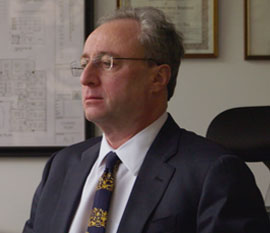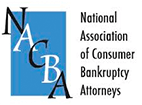Will a Trustee Look at My Bank Accounts if I File for Bankruptcy in New York?

During a bankruptcy filing, the Bankruptcy Court appoints a bankruptcy trustee to perform various duties required by law, according to the circumstances of the bankruptcy case, the debtor, and their creditors. One of the trustee’s duties is to investigate the financial affairs of the individual who filed for bankruptcy and ensure the individual surrenders property as required to satisfy debts. This requires the bankruptcy trustee to have full access to your bank accounts.
Contents
Who Is a Bankruptcy Trustee?
When someone files for bankruptcy, their assets (money, accounts, personal property) become a bankruptcy estate. The bankruptcy court appoints a bankruptcy trustee to administer the bankruptcy estate.
For Chapter 7 cases, each district office of the U.S. Bankruptcy Court appoints a group of private trustees and assigns the trustees cases on a rotating basis. For Chapter 11 business reorganization bankruptcies, trustees are appointed on a case-by-case basis. For Chapter 13 cases, there is one standing trustee for each type of bankruptcy in each district.
Bankruptcy trustees typically have well-established financial, administrative, and interpersonal skills. They must pass background checks and qualify to be bonded.
Will The Bankruptcy Trustee Search Through My Bank Accounts?
The bankruptcy trustee will review bank deposits and withdrawals. You should be ready to account for any large movements of money in your accounts that are not accounted for in a repayment plan. The trustee will be concerned about abuse of the bankruptcy system and whether you have assets that should be used to pay creditors.
What Is the Bankruptcy Trustee Looking for?
A bankruptcy trustee’s duties vary according to the type of bankruptcy petition:
- Chapter 7: Collect and sell non-exempt property and administer the distribution of proceeds to creditors. Challenge creditors’ claims where appropriate and ensure the appropriate discharge of debt.
- Chapter 11: Reorganize the debtor’s business obligations, debts, and assets to emerge from bankruptcy and continue operation.
- Chapter 13: Review and comment on the debtor’s proposed repayment plan and collect monthly payments and distribute them to creditors according to the approved plan.
A bankruptcy trustee will primarily review a filer’s bank accounts to ensure they reflect the individual’s financial status as stated in the bankruptcy filing. For example, the trustee will verify that monthly payments match expenses stated on bankruptcy forms. The types of issues a trustee will question when they see them include:
- Recent transfers of money that could have helped the filer qualify for bankruptcy.
- Recent large withdrawals. The trustee will likely ask what the money was spent on.
- Purchases of assets, which could be used to repay creditors.
- Preferential payments. For example, the Bankruptcy Code does not allow individuals filing bankruptcy to pay debts owed to friends or family members in lieu of other creditors.
A Chapter 7 bankruptcy trustee in New York can look at bank records as far back as six years or seven years if the filer sold property more than six years ago. A Chapter 13 trustee will likely review only the last six months of bank statements.
Contact An Experienced New York Bankruptcy Attorney Today
If you are struggling with insurmountable debt, a knowledgeable and compassionate New York bankruptcy lawyer at Michael H. Schwartz, P.C. can help you get your life back on track. We’ll help you understand which of your assets are shielded from inclusion in the bankruptcy estate and which the trustee may dispose of to pay creditors. In New York, call Michael H. Schwartz, P.C. at (800) ON MY SIDE today or fill out our online contact form for a initial consultation.

Michael H. Schwartz is the largest filer of bankruptcy cases for people living in Westchester and Rockland counties in New York. A graduate of New York Law School, Michael has been licensed to practice in New York State courts since 1983. He is also licensed to practice in the U.S. Bankruptcy and District Courts for the Southern, Eastern and Northern Districts of New York and the District of New Jersey as well as the Second Circuit U.S. Court of Appeals. He is a graduate of Max Gardner’s Bankruptcy and Veterans’ Boot Camps. Several media outlets have reported on his cases or sought his insights, including The New York Times.





